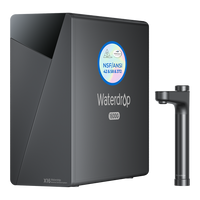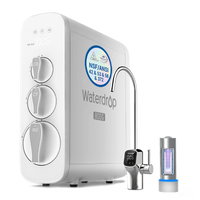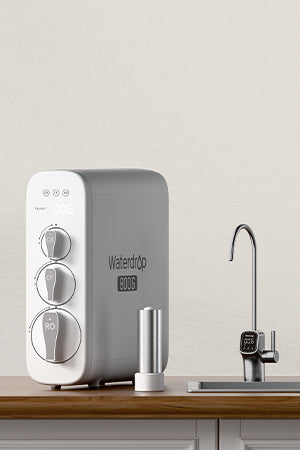Water is a fundamental factor for human life. Have you ever examined a bottle of water and seen an expiry date? It is perplexing to discover how something as simple and natural as water can become spoiled.
This blog will examine the potential for water to expire, the significance of expiry dates on bottled water, proper water storage techniques, and the optimal timing for replacing your emergency water supply. Let us begin.
Does Water Have an Expiration Date?
From a chemical perspective, pure H₂O does not have an expiration date. Water is a stable chemical compound that does not deteriorate or decompose over time under typical circumstances. In a sterile, sealed container devoid of light, air, or pollutants,
100% pure water would remain perpetually stable.
In reality, water is seldom kept in optimal conditions. That is where complications arise.
Why There Is an Expiration Date on Bottled Water?
Bottled water generally displays an expiry date, usually two years after the bottling date. However, this is not due to the water itself deteriorating. The cause is the packing.
The majority of bottled water is contained in plastic vessels composed of
polyethylene terephthalate (PET) . Over time, chemicals from the plastic may gradually leak into the water, particularly when subjected to heat or strong sunshine. These substances do not instantly render the water dangerous; nonetheless, they may influence its flavor, odor, and overall quality.
The Variables That Have an Effect on the Water's Quality over Time
Material of the Container
Plastic bottles are particularly susceptible to chemical leaching and deterioration. Glass or stainless steel containers provide superior long-term storage; nevertheless, their use in commercial water products is limited owing to cost and weight considerations.
Light and Heat Exposure
Ultraviolet light and elevated temperatures may expedite the degradation of plastic bottles and facilitate the proliferation of algae or bacteria, particularly if the seal is compromised. Consistently keep water in a cold, dim environment.
Air Pollution
Upon opening a water container, it becomes exposed to air. This may introduce microorganisms and particles that progressively modify the water's makeup, rendering it dangerous for consumption over time.
Can Tap Water Deteriorate?
Tap water, particularly when stored in the house, does not have an expiry date; however, this does not mean it is safe to drink indefinitely.
What is the Shelf Life of Stored Tap Water?
The Centers for Disease Control and Prevention (CDC) states that tap water, when stored in clean, food-grade containers, is often safe for a duration of up to six months. It may continue to seem to be in good condition after that, but there is a greater possibility of bacterial infection.
To keep tap water for an extended period, it is advisable to:
- Utilize containers that have been sterilized and are designed specifically for the storage of water.
- Add 1/8 teaspoon of household liquid bleach per gallon (without additions) as a disinfectant.
- Put the date of filling on the label of each container.
- Keep in a dark, cool area.
Indications That Water May Not Be Safely Stored
Although water lacks a conventional "expiration," it may still become unfit for consumption. Below are some indicators of caution:
A sulfuric or chemical stench is a warning sign that should be taken seriously.
The water should be completely clear if it is pure.
A greenish hue may indicate the presence of biological contaminants.
Metallic, harsh, or plastic-like tastes are atypical.
If you're unsure, it is advisable to cleanse or replace the water.
Methods for Secure Long-Term Water Storage
Adhere to these standards for emergency preparation or extended storage.
Utilize Appropriate Containers
Select containers made of
BPA-free plastic, stainless steel, or glass. Refrain from using containers that once contained milk or juice, since residual substances may foster bacterial proliferation.
Disinfect Before Utilization
Thoroughly cleanse containers and disinfect them using a solution of 1 teaspoon of household bleach per quart of water. Thoroughly rinse before filling with potable water.
Ensure That Your Water Supply is Rotated
Even well-kept water should be cycled every six months to maintain freshness. Include it in your seasonal routine, similar to how you change smoke detector batteries.
What about Canned Water and Emergency Water Pouches?
Emergency kits may include foil-sealed water pouches or canned water with shelf life ranging from 5 to 50 years. These items are specifically engineered for prolonged storage, with sterile packaging and no air exposure.
They constitute an excellent investment for disaster preparation and are often used by military personnel, rescue teams, and survivalists.
Is It Safe to Consume Expired Bottled Water?
If you come across an old bottle of water that has passed its expiry date, it does not always mean that it is harmful to drink. Pose the question to yourself:
- Has the bottle been kept in a cold, dark location?
- Is the seal unbroken?
- Does it seem, odor, and flavor normal?
If the response is positive, it is probably safe to consume. If you see any anomalies, do not take chances—either replace it or boil it.
Enhancing the Safety of Stored Water
Even if water has been stagnant for an extended period, there are methods to render it safe once more:
- Boil for a minimum of 1 minute (or 3 minutes at high elevations).
- Utilize water purification pills or household bleach.
- Employ a reverse osmosis water filtering system for superior purification.
Water Does Not Expire, yet It May Become Unsafe
In conclusion, water does not deteriorate, but its storage conditions are significant. Bottled water may deteriorate because of its packaging, and tap water kept might get polluted over time. By comprehending storage protocols and recognizing indicative symptoms, you may guarantee that your water remains pure, fresh, and safe for use.
Whether you are preparing for crises or just inquisitive about that neglected bottle in your cargo that has expired, your approach to it significantly impacts the outcome.










































































